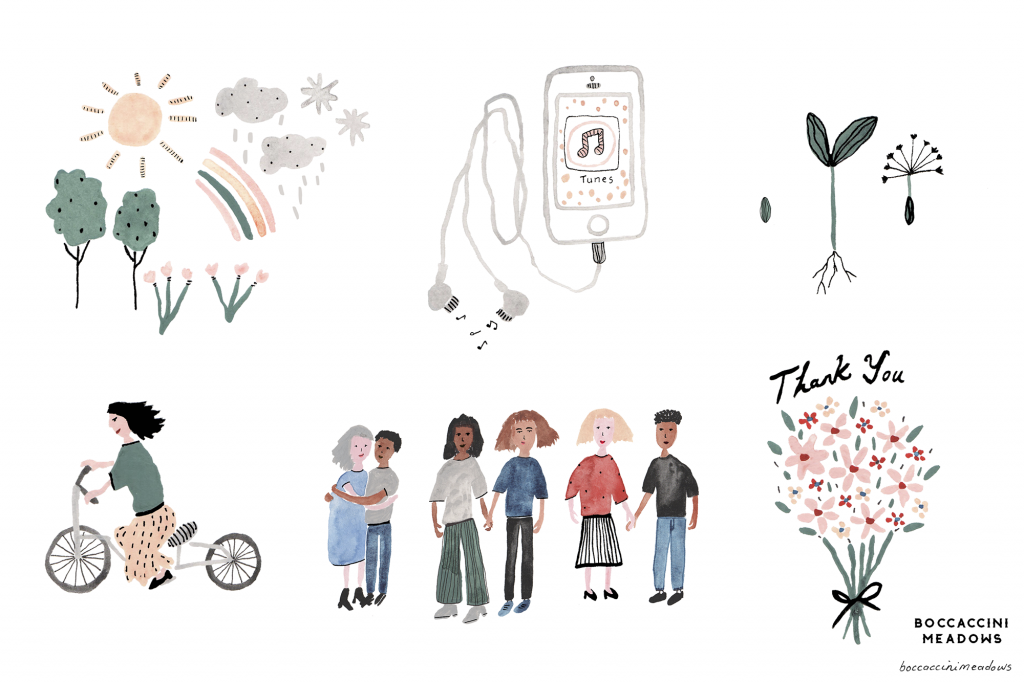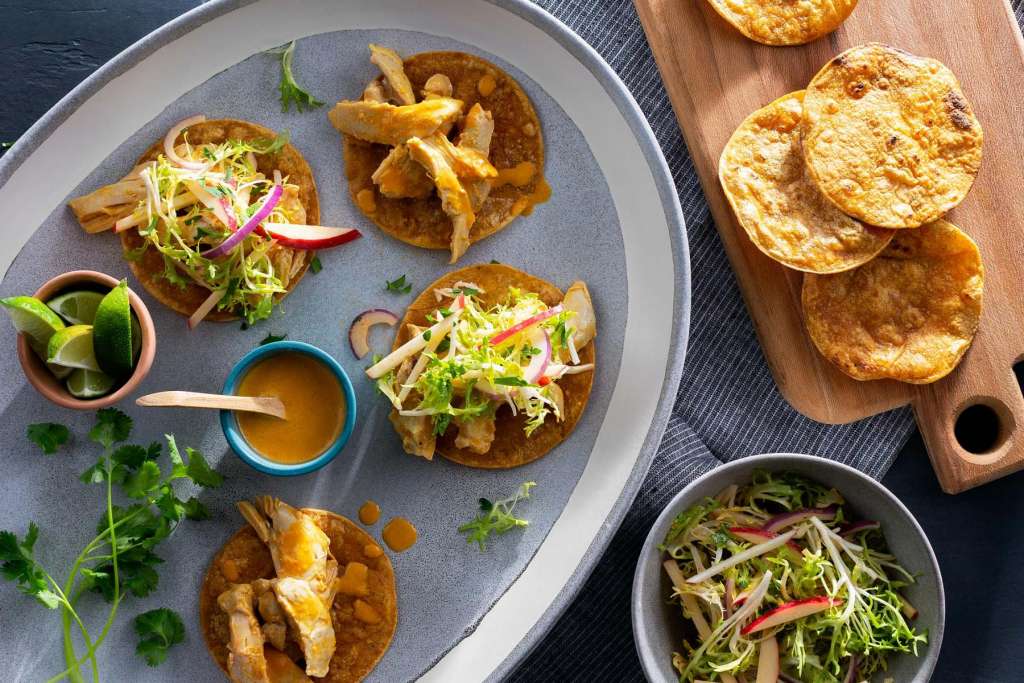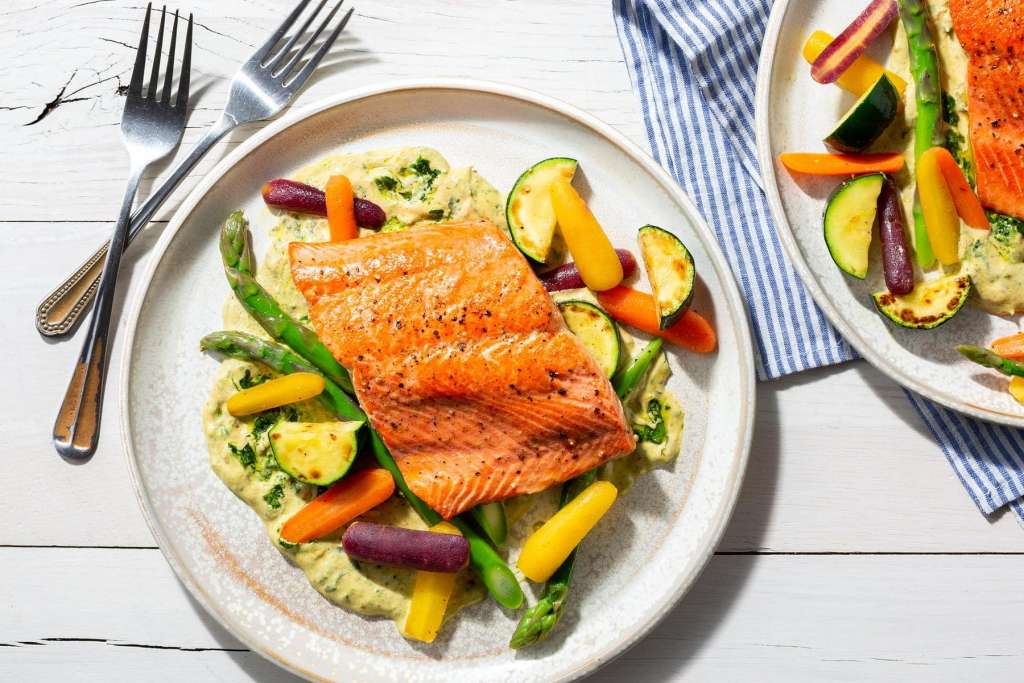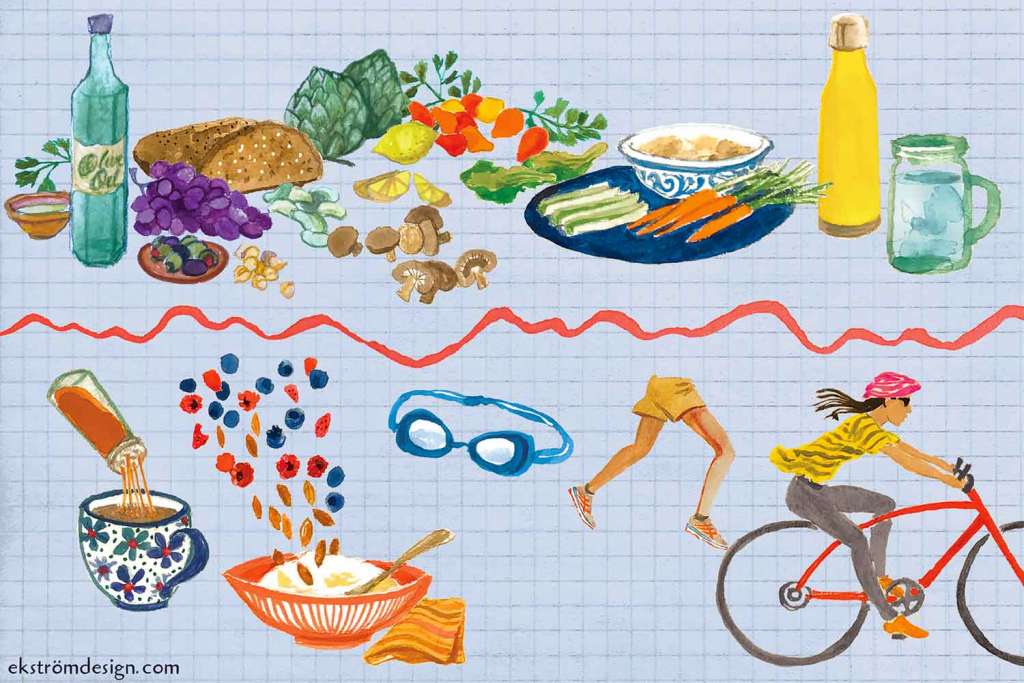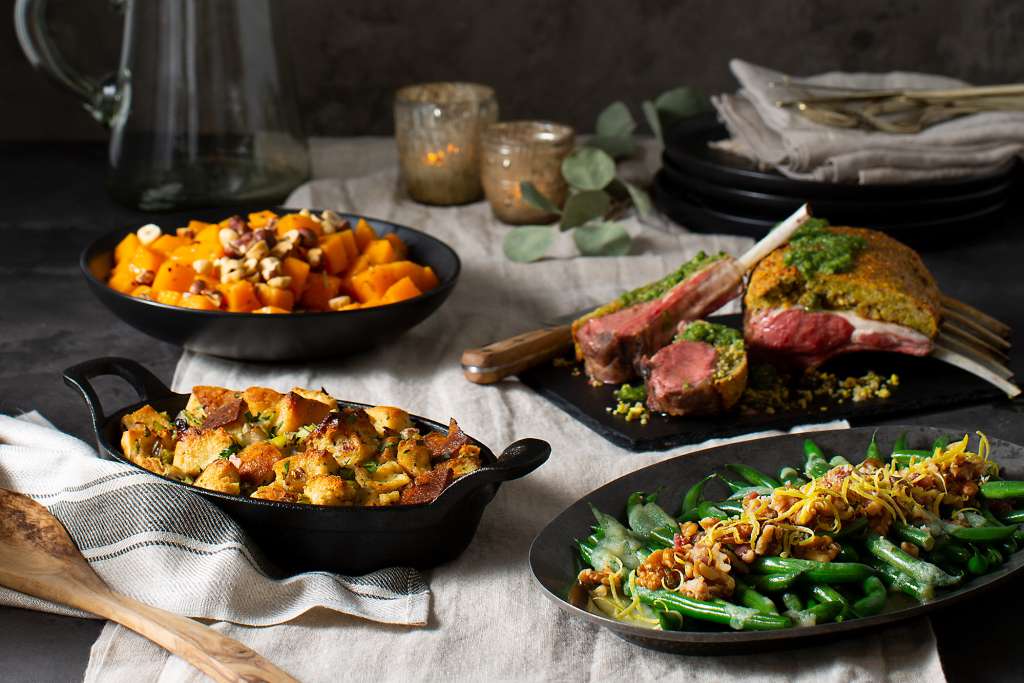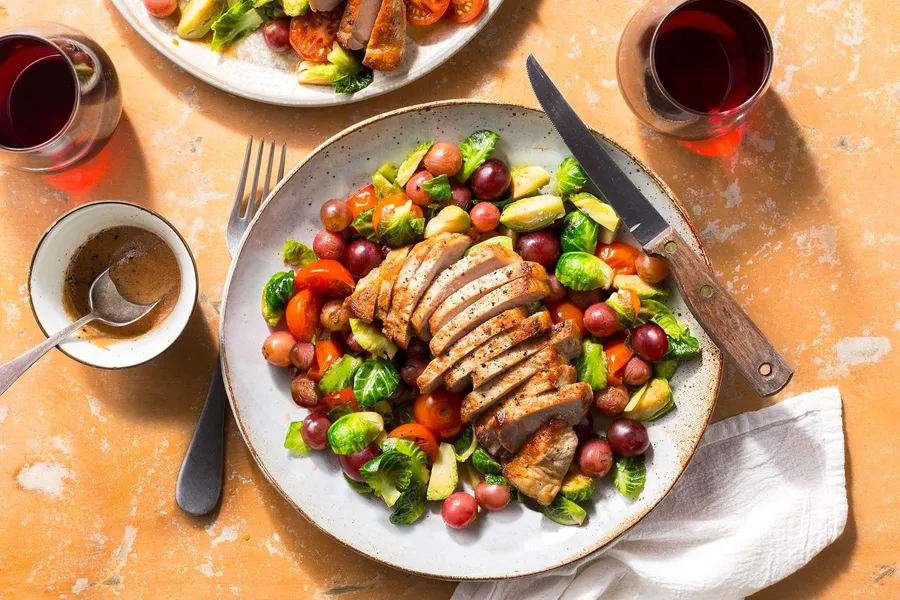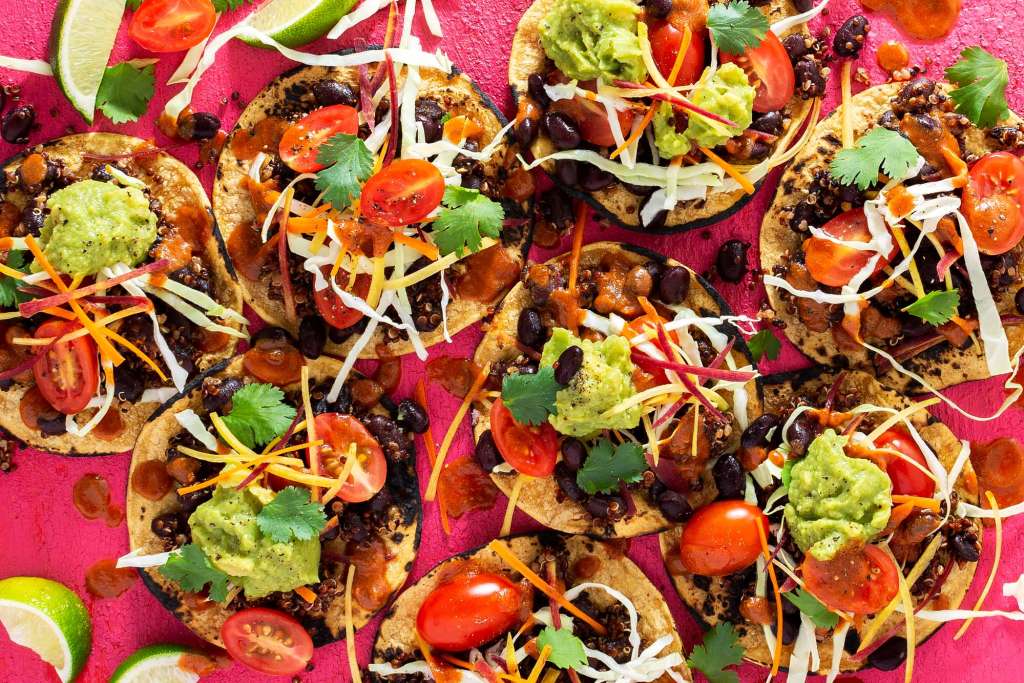The Best Diet to Start in 2022

You want to eat clean and feel great, but with so many diets out there, which one is the best diet for you? We have an interesting nugget of research for you, top diets to choose from, and one surefire way to yum yourself to a better you in 2022.
First, our umbrella advice for setting yourself up for success no matter which diet you choose:
- Love what you eat. Your taste buds gotta be in on this.
- Create good vibes around food. Guilt and food shaming be gone.
- Eat with your peeps. Connecting over food is good for you.
- Make eating well easy. If a diet is way hard, it won’t last.
Here’s that nugget of research to think about as you choose the best diet for you. There’s just no nice way to say it: ninety five percent of diets fail (oof!). But five percent succeed, and we know that’s going to be you. So what’s the secret to success?
Habit experts have identified that we repeat what feels good. The key to the best diet for you is that it has you eating foods that taste great and make you feel vibrant, alive, nourished, and energized. Luckily there’s no shortage of exciting and healthy recipes out there. When you like what you’re eating, what starts as a diet transforms to a long-term healthy lifestyle—and that’s the real win, because it builds habits that last.
Below are 10 diets to consider to help you feel amazing in 2022 and beyond.
The Mediterranean Diet
Based on the traditional eating styles of Italy and Spain, the Mediterranean diet is the most recommended diet for overall health and longevity by experts year after year. The Mediterranean diet includes lots of fruits, vegetables, whole grains, legumes, poultry and fish, with only moderate quantities of eggs, dairy, and red meat. Red wine is often included, though in small amounts. The diet does not require calorie counting or number crunching. It is a flexible, holistic approach to eating that focuses on enjoying nutrient-rich whole foods and letting them work their synergistic magic.
The DASH Diet
Short for “Dietary Approaches to Stop Hypertension,” the DASH diet was designed to reduce high blood pressure. It focuses on low-sodium foods as well as increasing fruits and vegetables and emphasizes good sources of calcium, magnesium, and potassium. The National Institutes for Health found that this approach lowered blood pressure and LDL cholesterol (the type associated with heart disease), and it has also been found to lower body fat.
The MIND Diet
Short for “Mediterranean-DASH Intervention for Neurodegenerative Delay”, the MIND diet was designed to prevent dementia. Combining the largely plant-based approach of the Mediterranean diet with the low-sodium and unprocessed leanings of DASH, the MIND diet simply lists ten foods known to provide anti-inflammatory and antioxidant benefits that are connected to improved mental function. People who follow the diet try to get recommended amounts of each food every week.
The Flexitarian Diet
This plant-based approach is for people who want to eat less meat, but still have the flexibility to enjoy animal products occasionally. Flexitarian eaters try to increase their overall intake of fruit, vegetables, legumes and whole grains by adding some meatless or vegan meals into their routines.
The Vegan Diet
A 100% plant-based diet, vegan diners eat no animal products whatsoever for health, environmental, or ethical reasons. For many years, health professionals worried that this style of eating made it impossible to take in enough protein for your daily needs. However, recent research on vegan athletes has proven that even extremely active individuals can meet their high protein needs by eating a good variety of fruits, vegetables, legumes, whole grains, nuts, and seeds.
The Vegetarian Diet
Vegetarianism is similar to the vegan diet but can include eggs and dairy products. This makes it easier to get enough calcium, iron, and B vitamins, which are especially important for women. Choosing a balanced vegetarian meal plan is the key to success with this diet.
The Pescatarian Diet
Pescetarianism is a mostly plant-based diet that allows non-meat proteins, including eggs, dairy, and fish. Finding a pescatarian meal plan can help you mix up your daily regimen of fish and dairy.
The Paleo Diet
The Paleo diet is a relatively low-carb, high-protein diet designed to mimic what people ate in Paleolithic times, namely meat, eggs, fruit, vegetables, seeds and nuts, but no refined sugar, grains or dairy products.
The Intuitive Eating (Anti-) Diet
More anti-diet than diet, Intuitive Eating dissociates health with body size, honoring the differences of our genetic blueprints, and rejecting the thinner-is-better mentality. Intuitive Eating embraces a holistic view of well-being that includes emotional, mental, social, and physical needs. Ten principles of Intuitive Eating include relying on your body’s cues for hunger and fullness rather than external rules, exercising for enjoyment, and rejecting food shaming by yourself and others. Studies show Intuitive Eating raises self esteem, wellbeing and optimism, HDL (good cholesterol), psychological resilience, and life satisfaction.
The Anti-Inflammatory Diet
The Anti-Inflammatory diet focuses on reducing foods that cause inflammation in the body (e.g. salt, sugar, processed foods, and red meats) and eating more foods known to reduce inflammation (e.g. fruits, vegetables, whole grains and healthy fats). The Anti-Inflammatory diet helps decrease the risk of heart disease, depression, arthritis, and diabetes.
What are the best diets for men?
Although men and women’s bodies have obvious physical differences, the overall recommendations for their best diets are relatively similar: eat lots of fruits, vegetables, whole grains, healthy fats, and lean proteins, and stay away from too much salt, sugar, processed foods, and alcohol.
The main difference between most recommendations for men’s and women’s nutrition comes down to different amounts of nutrients for their different body sizes.
One notable exception is with regard to reproductive health. There is a Prostate-Protective Diet recommended for men, which focuses on cruciferous vegetables, berries, fish, cooked tomatoes, coffee, and tea. Male fertility is also a unique concern, with special requirements of zinc, selenium, omega-3 fatty acids, antioxidants, magnesium and calcium, copper and manganese (in moderate amounts), and fiber.
However, the recommendations for men’s fertility line up neatly with the Mediterranean diet, including oily fish, fruit, vegetables, and whole grains.
What are the best diets for women?
In spite of their superpowers, women generally don’t require gender-specific diets. The universal recommendations for whole foods, fresh produce, and lots of lean protein, healthy fats, and fiber usually serve women well.
The main areas where women’s nutritional needs differ from men’s are with regards to their reproductive health. Women are more prone to iron deficiency than men, particularly during menstruation, pregnancy, and breastfeeding. In general, experts do not recommend that women follow any diet that eliminates entire food groups during these times.
One surefire way to yum yourself to a better you:
With Sunbasket meal delivery service, eating how you want to eat is as easy as opening your door.
Sunbasket meal plans:
You simply choose the Sunbasket meal plan for the way you want to eat, pick meals and snacks for the following week, and we’ll deliver everything you need to your doorstep. From healthy cooking kits to heat-and-eat meals to grab-and-go bars to healthy treats, Sunbasket has everything you need for keeping it real and feeling your best all year long.
